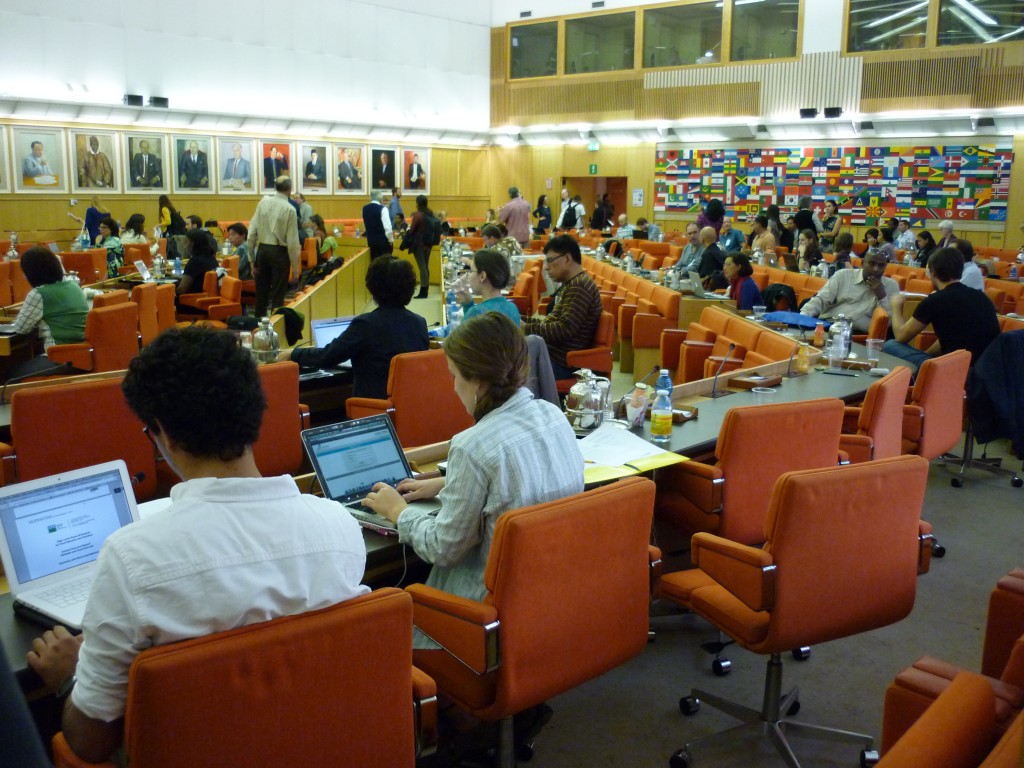By Nimisha Bastedo and Clara de Iturbe

We’ve arrived at the heart of global food politics: The Food and Agriculture Organization in Rome. We’re here for the 40th annual meeting of the Committee on World Food Security (CFS). As one of the opening speakers said yesterday morning, this committee is the “foremost inclusive, international, intergovernmental platform” for addressing food security and nutrition.
Soon, these halls will be filled with government representatives, coming from around the world to negotiate how they should move forward on some of the most pressing issues affecting the current state of global food security. But yesterday, not a single government was at the table. This weekend it is our space – the space of civil society. The CFS underwent a reform in 2009, and one of the outcomes of this reform was a more inclusive structure. For civil society, this means an unprecedented level of participation in the negotiations. While we still cannot vote, we have the right to speak on a supposed ‘equal level’ with governments. The purpose of this weekend is for all of us (small farmers, pastoralists, fisher folk, women, the landless, NGOs… and youth like ourselves) to attempt to find coherence and strength in what we will say.
In his address to the plenary yesterday morning, the Chair of the CFS said, “we can no longer walk in silence. We need to come together to walk together for the good of the millions and billions who are out there. We must remember our common goal. It is no longer acceptable that anyone go to sleep hungry.” The Director-General added with equal passion that we (the members of civil society present in the room) “are bringing the voices of the hungry – the voices of those that don’t have a voice”.
Despite this talk of the strength and importance of civil society input, many people were expressing their concerns: “We create guidelines, guidelines and more guidelines, and still people are starving.” “We’ve come with proposals, but governments have rejected them.” “The private sector’s voice gets more strength then ours”… These complaints were windows into some of the frustration that seems to have built up over several years of trying to engage in this space.
The meetings yesterday held a mixture of hope and powerlessness – a sense of unity combined with complex power dynamics and conflicting priorities. The people trying to engage in this space seem to be walking a fine line between optimism and desperation. As we move into the second day of the Civil Society Forum, and prepare for the ‘real’ negotiations that begin tomorrow, it will be interesting to see how this line evolves and on which side we will fall.